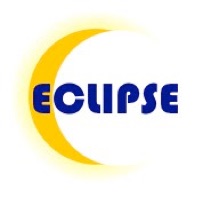The Understanding Science Project is an interview based project, exploring secondary age students' thinking about the science being studied in school. Interviews were carried out with volunteer students in a large comprehensive school.
Many previous studies have used interviews to explore student thinking in various topics in science. Usually these studies have focused on a specific topic or concept area. In the Understanding Science project, the learners were asked to talk about the science they had recently studied in science lessons, and so interviews spanned many topic areas. Interviews therefore generally focused on topics that the informants felt able to talk about. Where possible the same learners were interviewed on a number of occasions, providing some insight into consistency, continuity and development of thinking.
Interviews were undertaken with students across the secondary age range in the project school, i.e. 11-18 year olds. Understanding Science Participants
As the interviews were organised around asking learners about the science they were studying, a wide range of science topics were discussed during the project.
The Understanding Science Project has been looking at pupils’ experiences of learning school science, with the main focus on aspects of conceptual understanding. The project is part of ECLIPSE (Exploring Concept Learning, Integration and Progression in Science Education) and is located within a well-established tradition in science education of investigating how students construct their understanding of science topics. This is sometimes called ‘constructivism’ in science education, and for most researchers in the constructivist programme a key concern is to identify features of student learning that can inform science teaching (Taber, 2006).
Early work in this tradition sought to identify the range of student conceptions (especially misconceptions, or ‘alternative conceptions’) in different science topics. More recent work has explored broader questions, and ECLIPSE is concerned particularly with issues of how understanding develops, and the extent to which learners appreciate links within science subjects and topics.
The approach to this type of research is to interview individuals in depth, preferably over extended time periods. This does not offer the generalisability of findings possible from surveys, but is an approach which provides suitable data to investigate something as subtle, complex and individual as conceptual understanding. Longitudinal studies, such as this, are more difficult than approaches that collect data at one point in time, but are necessary when researchers are interested in conceptual change. This type of work has led to an international corpus of studies, exploring aspects of student learning in different science topics.
The Understanding Science Project is unusual in not focusing on any particular topic. Rather than asking students about a specific concept area, the interviews all start from what the student is currently studying in science. This adds methodological complications (as there is little control over the likely topics to be discussed; different students may talk about different topics; and discussions are usually about topics in progress rather than completed), however is a more naturalistic approach (as students are not being asked to think about topics that are not currently being considered in school). This approach allows the researcher to explore the extent to which the student can see links between different topics and science subjects: both those volunteered spontaneously, and by explicitly asking students if there are perceived links.
The focus on conceptual linkage is an important one that has not been widely explored (presumably because of the methodological difficulties alluded to above). Conceptual integration is at the heart of science, which seeks conceptual models and schemes that are consistent and based on as few fundamental assumptions as possible. Appreciating linkage between ideas is also at the centre of well-accepted theories of learning. So we should look to encourage conceptual linkage both to enhance learning in science, and to ensure that what is learnt in school science is an authentic representation of the nature of science itself.
Return to ECLIPSE homepage
List of science topics

Dr Keith S Taber kst24@cam.ac.uk
University of Cambridge Faculty of Education
© Keith S Taber